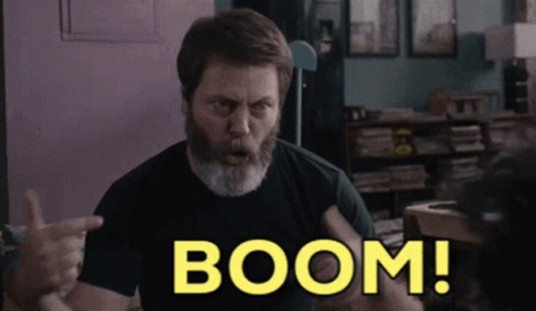We knew it wasn’t going to stop at Confederate statues. But we must admit to being a bit surprised that the pro-toppling movement’s next target would turn out to be … classic rock?
"The past several years have seen a reassessment of our country’s many mythologies," writes @JennyBoylan. "That reassessment extends now to the people who wrote some of our best-loved songs. But what to do with the art left behind?" https://t.co/wB9AbgVo4p
— New York Times Opinion (@nytopinion) November 3, 2021
"As we take another look at the sins of our historical figures, we’ve also had to take a hard look at our more immediate past and present, including the behavior of the creators of pop culture," writes @JennyBoylan. https://t.co/va2CjL9l04
— New York Times Opinion (@nytopinion) November 3, 2021
Contributing opinion writer Jennifer Finney Boylan concludes:
For a lot of baby boomers, it’s painful to realize that some of the songs first lodged in our memories in adolescence really need a second look. And it’s hard to explain why younger versions of ourselves ever thought they were OK in the first place.
I want to live in a world where I can be moved by art and music and literature without having to come up with elaborate apologies for that work or for its creators.
But does such a world exist? It is hard to think of some of our greatest artists without also thinking of their messy, sometimes destructive lives. In so many cases, it’s the very chaos of those lives that has helped create the art. It’s easy to romanticize that chaos and to ignore the wreckage artists can leave in their wakes.
It was Don McLean, in “American Pie,” who asked if music can save our mortal souls. My guess is probably not. But it can help us to time travel, and not only to our adolescent past. Maybe reconsidering those songs, and their artists, can inspire us to think about the future and how to bring about a world that is more inclusive and more just.
Recommended
Or, alternatively, classic rock Karens like Jennifer Finley Boylan can Walk This Way — right out the door.
Let's see what moronic, non-problem the NYT is trying to overanalyze today… https://t.co/Ta5bR0duin
— Jimmy G (@jimmygards) November 4, 2021
Some days, it really seems as if the @nytimes is dedicated to destroying every single thing I hold dear. Today's contribution: https://t.co/jnFhnJtOhv
— Ilan Berman (@ilanberman) November 4, 2021
I regret to inform you the NY Times is writing about music again https://t.co/Eb7D7id17i
— Seth Mandel (@SethAMandel) November 4, 2021
First they came for Confederate statues, and I said nothing. Then they came for Thomas Jefferson statues, and I said nothing. Then they came for … (checks notes)..Mick Jagger, and—whoa, wait a minute! No way! pic.twitter.com/2qZf0bcW81
— Steven F. Hayward (@stevenfhayward) November 4, 2021
Latest at @nytimes: Listening to Rock and Roll means you're a racist who wants to party like it's 1619
— Jonathan Kay (@jonkay) November 5, 2021
I always find the "But can we enjoy art from the bad men" conversations to be really weird, as if we're just supposed to scrub growing up on or enjoying certain shows or movies from our minds. But this is another level. https://t.co/EiZ9sWmSat
— Jason Diamond (@imjasondiamond) November 3, 2021
This is the dumbest thing I’ve read in a while. https://t.co/ph4abIET3k
— David Reaboi, Late Republic Nonsense (@davereaboi) November 4, 2021
This is beyond stupid but not surprising https://t.co/P5TmAosS2j
— Harry Khachatrian (@Harry1T6) November 4, 2021
I get why NYT would publish it, but what kind of brainworms do you have to have to write it https://t.co/40bmBwawt8
— Jen Monroe 🗽🌐 🦥 (@jenniferm_q) November 4, 2021
Heh.
"For a lot of baby boomers, it's painful to realize that some of the songs first lodged in our memories in adolescence really need a second look," writes @JennyBoylan. "it’s hard to explain why younger versions of ourselves ever thought they were OK." https://t.co/mjZmWRwFmk
— New York Times Opinion (@nytopinion) November 3, 2021
What a bizarre and telling question:
"Can I still love their music if I’m appalled by various events in the lives of Johnny Cash or Elvis or Jerry Lee Lewis? Or by Eric Clapton’s racist rants and anti-vaccination activism?"
— Matt Welch (@MattWelch) November 4, 2021
"I want to live in a world where I can be moved by art and music and literature without having to come up with elaborate apologies for that work or for its creators."
Please free me from the cage I built and locked myself inside!
— Matt Welch (@MattWelch) November 4, 2021
Don’t be like Jennifer, guys.
It's a good thing Dee Snider isn't dead, because he may have to testify before congress again soon. https://t.co/knUGUmSOuM
— jonstokes.com (@jonst0kes) November 3, 2021
Jennifer’s got it twisted, sister.
Editor’s note: The headline originally referred to Boylan as a New York Times opinion columnist. It has been changed to reflect that she is a New York Times contributing opinion writer.
























Join the conversation as a VIP Member